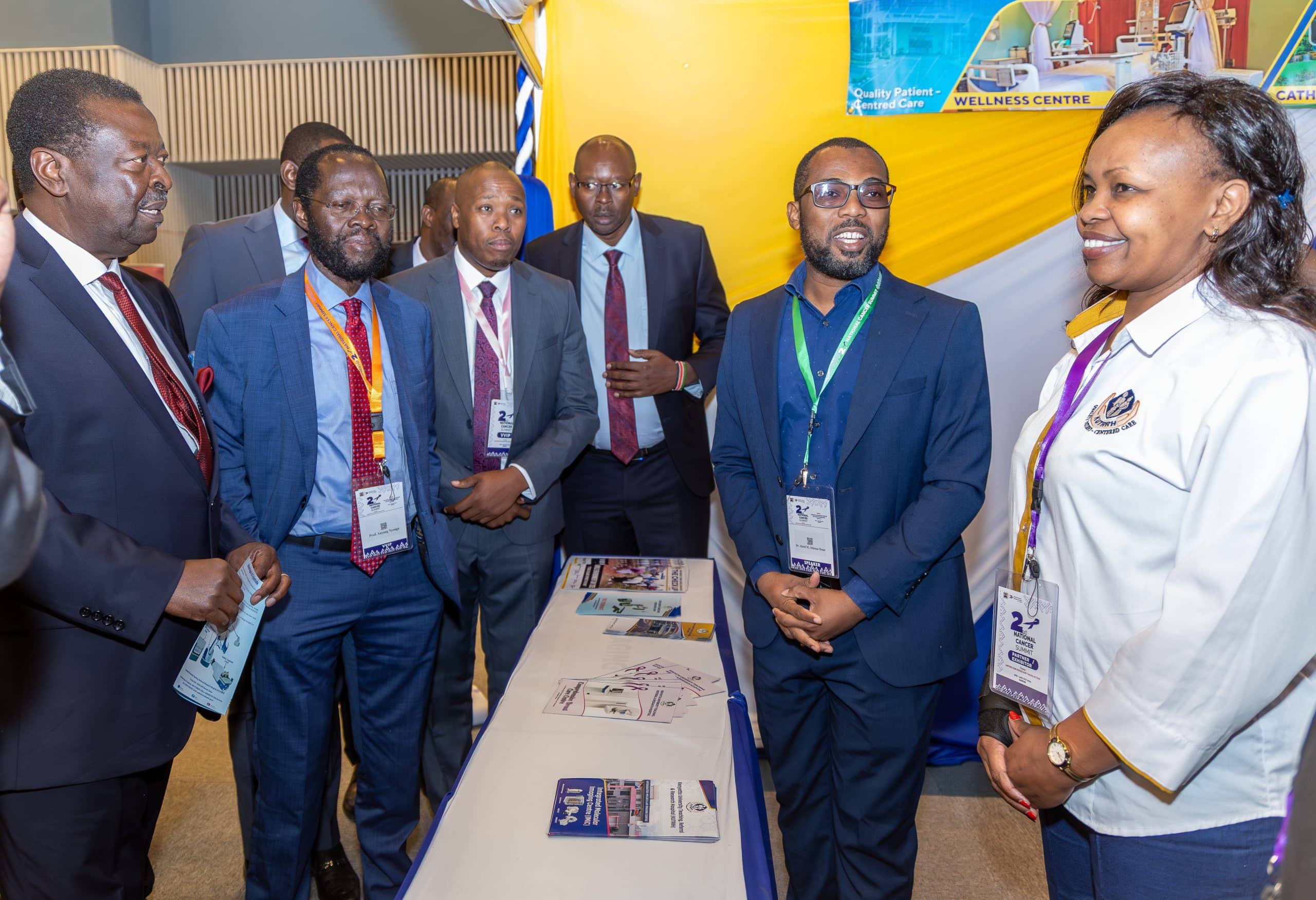
Kenya positions itself as regional hub for Cancer Care, says Mudavadi
He said the government is scaling up strategic investments in healthcare infrastructure, emerging technologies, and specialized human capital to tackle the rising cancer burden.
“Kenya records more than 44,000 new cancer cases annually. This is a crisis we can no longer ignore. Cancer is devastating our families, draining our economy, and overwhelming our health systems,” said Mudavadi, also Cabinet Secretary Foreign and Diaspora Affairs.
He added that beyond the health implications, cancer has far-reaching social and economic consequences, often plunging families into poverty and distress due to high out-of-pocket treatment costs.
Mudavadi emphasized that cancer must be approached as a national development priority and not merely as a medical issue.
“This fight requires all hands-on deck, not just from the health sector but across all arms of government and all segments of society. Every ministry, every county, and every citizen have a role to play,” he said.
He called for the mainstreaming of cancer prevention and treatment in the national development discourse and urged the public to take an active role in awareness efforts.
“Cancer awareness must become part of our national consciousness. We must fight ignorance and fear with information and compassion. Let the conversation move from boardrooms to classrooms, from hospitals to homes, from the media to the marketplace,” he added.
Prime Cabinet Secretary took to officially launched Kenya’s first National Radiotherapy Protocols, which aim to standardize and harmonize cancer treatment services across the country.
“This is a major milestone. It will reduce disparities and restore dignity to patients undergoing cancer therapy, whether in Nairobi, Turkana or Taita Taveta,” said Mudavadi, noting that standardized protocols will ensure quality and timely care irrespective of geographic location.
He commended the Ministry of Health and its development partners including the World Health Organization (WHO), the International Atomic Energy Agency (IAEA), and the Union for International Cancer Control (UICC), for their continued support in strengthening cancer control systems in Kenya.
He called for deeper collaboration between the national government, county governments, development agencies, academic institutions, the private sector and civil society.
“The burden of cancer cannot be carried by one ministry, one county, or one partner. It must be a shared responsibility,” he stressed.
Mudavadi also advocated for a broader approach to cancer control by integrating sectors such as agriculture, ICT, education, environment, energy, and transport into the national cancer response.
“Food safety, environmental pollution, digital access and transportation all influence cancer outcomes. We must widen the lens beyond hospitals,” he noted, adding that innovative partnerships and inter-sectoral coordination would be key to reducing the disease burden.
Cabinet Secretary for Health Aden Duale, who also addressed the summit, reiterated that cancer remains one of the leading causes of premature deaths in Kenya, placing enormous financial and emotional pressure on families and the national healthcare system.
Duale said the government is keen on building a resilient and inclusive cancer care ecosystem, anchored on sustainable financing and robust governance structures.
He noted that the newly established Social Health Authority (SHA) will play a pivotal role in delivering equitable access to early screening, timely diagnosis, quality treatment, and palliative care under the Universal Health Coverage (UHC) framework.
“We are decentralizing oncology services and working with counties to roll out new regional cancer centres,” said Duale. “This will ease congestion at national referral hospitals and bring services closer to communities.”
Kisumu Governor Prof. Anyang’ Nyong’o urged counties to play a more proactive role in cancer control, including awareness creation, early screening, and resource mobilization at the grassroots level.
First Lady Dorothy Nyong’o, who leads the Africa Cancer Foundation, highlighted the need for increased psychosocial support for survivors and caregivers.
“Let us remember the emotional and mental toll that cancer inflicts, not just on patients but on entire families,” she said, calling for mental health to be mainstreamed in cancer care policies.
Senator Jackson Mandago, Chairperson of the Senate Health Committee, assured participants of Parliament’s continued support in strengthening legislative and budgetary frameworks that promote access to cancer care.
